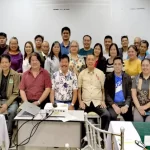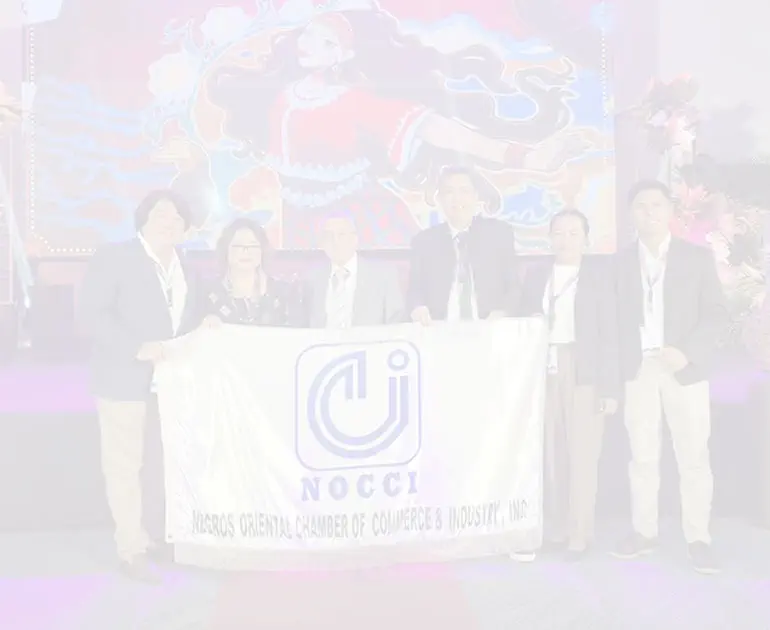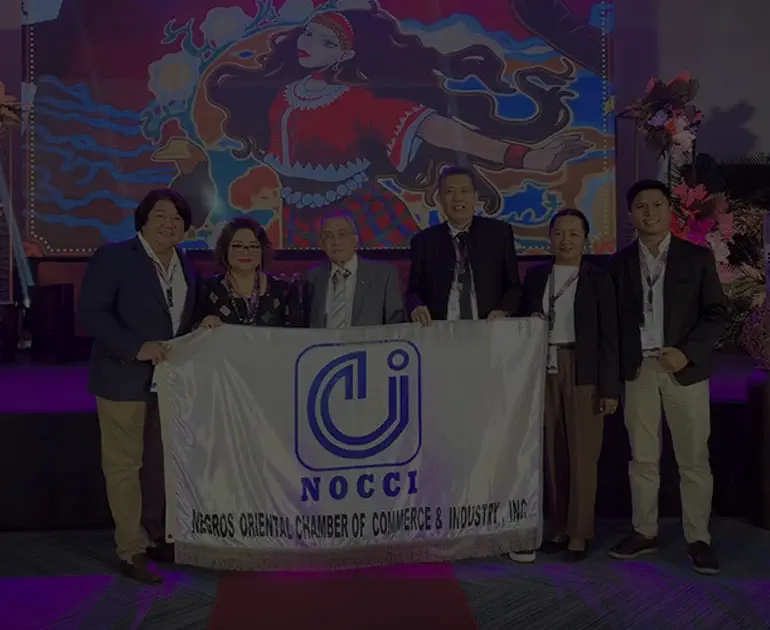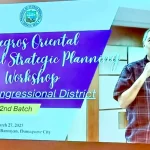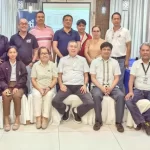The Negros Oriental Chamber of Commerce and Industry (NOCCI), officers led by President Edward Du, hosted a business meeting for the NEDA Negros Island Region team, headed by Regional Director Engr. Arecio Casing, to solicit their support for the NOCCI Tamlang Valley Food Security Flagship Project. This project aims to strengthen food security in the region by boosting agricultural productivity and ensuring sustainable livelihoods for local communities. President Du commended NEDA for their collaborative efforts in addressing food security concerns and supporting vital local initiatives that align with the region’s economic development goals.
NOCCI Engages NEDA for Support on Tamlang Valley Food Security Project
In a strategic move to address long-term food resilience and regional development, the Negros Oriental Chamber of Commerce and Industry (NOCCI), led by President Edward Du, hosted a high-level business meeting with the National Economic and Development Authority (NEDA) Negros Island Region team. The session focused on mobilizing support for NOCCI’s Tamlang Valley Food Security Flagship Project—an initiative aimed at transforming local agricultural productivity and ensuring sustainable livelihoods for communities in Negros Oriental.
Held in Dumaguete City, the meeting gathered key decision-makers and development planners from NEDA, led by Regional Director Engr. Arecio Casing. The dialogue centered on the alignment of the Tamlang Valley initiative with the broader regional economic agenda and the critical need for public-private cooperation in advancing sustainable agriculture and food systems.
President Du opened the meeting by outlining the vision and strategic goals of the flagship project. “Tamlang Valley has immense potential to become a model of integrated, climate-smart agriculture. With proper infrastructure, investment, and policy support, it can be the cornerstone of food security not just for Negros Oriental, but for the entire Negros Island Region,” Du said.
The Tamlang Valley Food Security Project seeks to convert the fertile valley into a productive agricultural zone that supports both high-value crops and staple food production. Key components of the plan include infrastructure upgrades, irrigation improvements, farmer training, agri-technology adoption, and supply chain development. The ultimate goal is to create a replicable model that boosts rural income and secures food availability for local and neighboring communities.
NEDA Regional Director Casing commended NOCCI’s proactive leadership and affirmed NEDA’s openness to collaborative programs that address pressing development concerns such as food security. “What NOCCI has proposed fits perfectly with our regional planning framework. We believe this type of flagship project will not only bring economic benefits, but also advance our long-term resilience targets,” he noted during the session.
Throughout the meeting, emphasis was placed on the value of multi-sector engagement in development initiatives. The NOCCI team highlighted the chamber’s role in unifying efforts from agribusiness leaders, local government units, civil society, and academic institutions to ensure the success and sustainability of the project.
According to President Du, the chamber is already working with several farmer organizations and cooperatives in the Tamlang area to organize resource mapping and capacity-building activities. These are intended to lay the groundwork for scaling up production and attracting future investors. He stressed that the involvement of NEDA, particularly in policy facilitation and project endorsement, would be pivotal to expanding the reach and impact of the project.
The proposed food security zone is also expected to serve as a demonstration area for sustainable farming techniques and technology integration. This includes organic farming, permaculture design, and mechanization methods that reduce labor burden while increasing yield. These innovations, Du said, are essential for keeping the sector competitive while promoting environmental sustainability.
Beyond agriculture, the project also integrates social and economic development goals by creating employment opportunities, enhancing food access, and uplifting underdeveloped communities in the valley and surrounding barangays. NOCCI envisions the initiative as a comprehensive approach to rural development that aligns with national priorities under the Philippine Development Plan and Sustainable Development Goals (SDGs).
Director Casing emphasized the importance of data-driven planning and encouraged NOCCI to collaborate with NEDA in conducting feasibility studies and economic impact assessments. These studies would serve as the basis for further support and possible funding access from government agencies and development partners.
The business meeting concluded with a shared commitment to formalize cooperation through technical working groups and future joint site visits. Both NOCCI and NEDA expressed optimism that the Tamlang Valley project could serve as a model of inclusive growth through strategic alignment, local initiative, and institutional support.
As the province of Negros Oriental continues to confront challenges related to food supply, rural underemployment, and climate change, the Tamlang Valley Food Security Flagship Project offers a timely and transformative solution. The leadership of NOCCI, bolstered by partnerships with national planning agencies like NEDA, is setting the stage for a more secure, productive, and resilient agricultural future for the region.



